Planning to raise chickens in your backyard? Want to know how chicken poop can indicate to you about their health?
Poultry diarrhea happens because of some usual bacteria like Campylobacter jejuni, Clostridium perfringens, Salmonella, and E. coli. These bacteria get into the birds’ digestive system, causing swelling and irritation, which leads to diarrhea.
Watching your chickens’ poop can give you big clues about their health. If something goes wrong, this post has all you need to know about chicken diarrhea and figure out any issues.
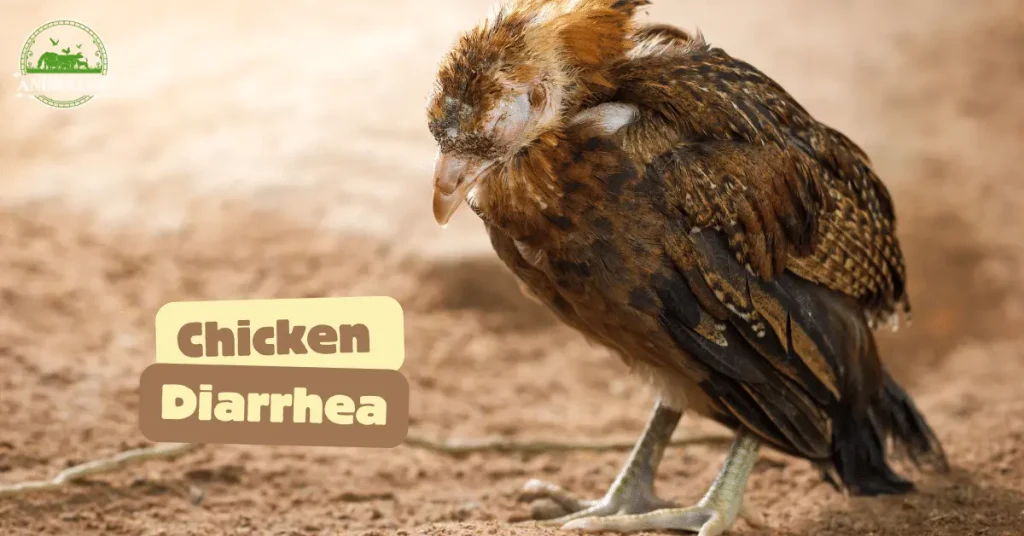
What Does Normal Chicken Poop Look Like?
Chicken poop can look different in size, thickness, and color (we’ll talk about what color means later). But usually, healthy chicken poop is small, brown, firm bits with a white top.
The white top is because chickens don’t pee like we do. They mix something called urates with their poop, making that white top.
Chickens sometimes have what’s called cecal droppings too. These are a bit more liquid and smell pretty bad, but they’re normal and not a problem.
What Does Chicken Diarrhea Look Like?
Chicken diarrhea is thin and watery, looking more like muddy brown or white water. It also smells really bad. So, if you see stinky, watery messes in your chicken area, it’s likely diarrhea.
But, just one watery poop isn’t a big deal – diarrhea means having three of these watery poops in one day.
So, if a chicken has a runny poop, just watch them for a bit. If it keeps happening, you’ll need to figure out what’s wrong and fix it.
| Symptoms | Causes | Treatment & Prevention |
|---|---|---|
| Watery, stinky droppings | Overeating certain foods, hot weather, stress, antibiotics, worms | Adjust diet, ensure clean water and food, reduce stress, worm medication |
| Muddy brown or white diarrhea | Dirty food/water, dead animals in coop, diseases like coccidiosis, cholera | Clean coop, quarantine new birds, maintain hygiene, consult vet for serious diseases |
| Yellowish, foamy poop | Infectious Bursal Disease (Gumboro) | Vaccination at a young age, clean environment |
| Diarrhea with blood | Coccidiosis | Immediate veterinary care, keeping the coop clean, separating sick chicks |
| Green watery diarrhea | Virulent Newcastle Disease (VND), infections, worms, injury | Good cleanliness, vaccinations, proper diet, isolating and treating infected chickens, veterinary care for serious conditions |
What Causes Diarrhea in Chickens?
There are quite a few reasons, and here are some common ones.
Eating too much of certain foods
Sometimes, if chickens eat too much of some types of food, like acidic fruits or watery veggies, they might get loose stools for a bit. This usually fixes itself without you needing to do anything.
Hot weather
When it’s really hot, chickens drink more and eat less. This can make their poop runnier than usual. It’s not a big case, just make sure they have plenty of water and try to keep them cool.
Stress
Chickens can get diarrhea if they’re stressed, maybe because of a new chicken joining the flock or a predator scaring them. Once they get used to the new chicken or feel safe again, the diarrhea should stop.
Antibiotics
Taking antibiotics can mess with chickens’ stomachs for a little while. If they’re on antibiotics a lot, it might be a problem. Chickens shouldn’t need antibiotics all the time.
Worms
If chickens get worms, that can cause diarrhea. You might need to give medicine to the whole flock to get rid of them.
Dirty food or water
Keeping their food and water clean is super important. Dirty feed or water can easily give them diarrhea. Change their water often and don’t leave old food out.
Dead animals around
If a dead mouse or something gets into their space, it can make them sick. Keep the coop clean and try to keep pests out.
Coccidiosis
This is a sickness from dirty conditions, caused by tiny parasites. It spreads fast and can make chickens really sick. Look out for blood in their poop and stop the spread of disease as soon as you see it.
Chicken cholera
If chickens have diarrhea, trouble breathing, and look different around their heads, they might have cholera. There’s no cure, so keeping them healthy and their homes clean is key.
Virulent Newcastle Disease (VND)
This is a very bad disease that can kill a lot of chickens. It causes green watery diarrhea and other serious symptoms. Good cleanliness and vaccines can fight the best against chicken diarrhea. If it hits, you need to act fast to save as many chickens as you can.
Infectious Bursal Disease
Infectious Bursal Disease (gumboro disease), is a very serious sickness that spreads easily among chickens.
To spot this disease, watch for yellowish or yellow and foamy poop. Other signs are chickens pecking at each other, acting tired, feathers looking messy, shaking, walking slowly, not eating much, and having a hard time pooping.
You can give chickens shots to protect them from this disease when they’re young.
Diagnosing Chicken Illnesses
If you see that one or more of your chickens have diarrhea more than just once, you need to figure out why before you can fix it.
First, think about if it might be because of what they’re eating if they’re stressed, or if they’re taking antibiotics, these are common reasons.
Look for signs of worms and make sure their home food and water are clean.
Also, keep an eye on your chickens for other symptoms that something’s fishy. For instance, if chickens are really struggling and have twisted necks or can’t move properly, it might mean they have VND.
Knowing what different colors and types of poop mean can also help because chicken poop can give you lots of clues about their health.
If you don’t know why your chicken is losing weight unexpectedly, it might be due to a disease called a sour crop.
Treating Diarrhea in Chickens
When you see that your chickens have diarrhea, check their poop and any other symptoms to figure out what’s wrong.
Sometimes, if they just ate too much of something they shouldn’t, switching back to their regular food can fix the problem. But even for small issues, chickens with diarrhea need extra care.
Diarrhea can make chickens lose water and get dehydrated. They also lose important body salts. Giving them a special water drink can help them feel better faster.
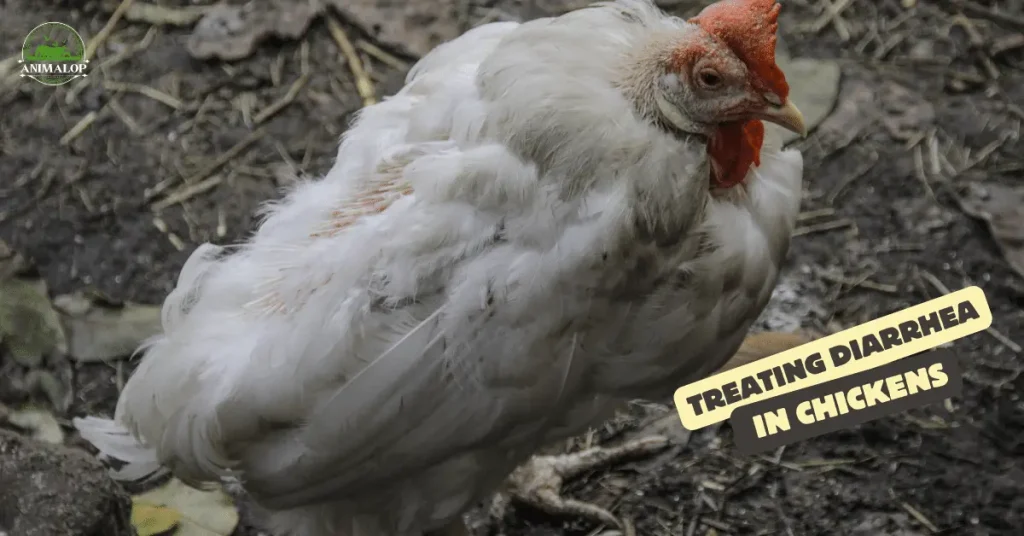
Mix 8 teaspoons of sugar with salt and baking soda (each half teaspoon) into a gallon of water. This mix helps them stay hydrated and replaces lost salts. Just don’t give them too much, or it could make their diarrhea worse.
For serious problems like coccidiosis, you might need to give your chickens medicine. For very bad diseases like cholera or VND, the only choice might be to put the sick chickens to sleep to keep the rest of your chickens safe. If you are uncertain about what step to take, you ought to talk to a vet.
Chicks with Diarrhea
If baby chickens (chicks) have diarrhea, it’s a bigger problem than when adult chickens have it. Chicks aren’t as tough and get sick easier.
Coccidiosis is a common sickness in chicks that can make them very ill or even cause death because of diarrhea and losing too much water.
If you see any chicks with diarrhea, you should quickly put them away from the others and call a vet for help.
When you get new chicks, check if they’ve had their shots against coccidiosis. If you’re hatching chicks yourself, make sure they get their shots when they’re supposed to. Also, get to know when can chickens go outside.
How to Prevent Diarrhea in Chickens?
To stop your chickens from getting diarrhea in the first place, here’s what you should do:
Clean the chicken house and yard
Always keep where your chickens live clean. Change their bedding often and use disinfectant when you clean deeply to stop diseases.
Change their food and water often
Old food and dirty water can make your chickens sick, so give them fresh food and clean water regularly.
Look for bugs and give them worm medicine
Checking your chickens for lice and mites and giving them worm medicine when needed can stop many sicknesses.
Keep different birds apart
If you have ducks or turkeys, don’t let them hang out with your chickens. This helps stop diseases from spreading.
Separate chickens by age
Except for mother hens and their babies, keep chickens of different ages away from each other.
Be careful with visits
If you have a lot of chickens, don’t go to other chicken places or let people visit your chickens. If visits happen, clean your shoes and clothes well before and after, and make sure your visitors do the same.
Quarantine new chickens
When you get new chickens, keep them away from your other chickens for at least 30 days. This stops them from possibly spreading sicknesses.
Stay up to date on shots
Chickens can get shots to protect them from many diseases, not just the ones that cause diarrhea. Make sure your chickens get all their needed shots.
FAQs
Final Thoughts
Sometimes, chickens might get a little diarrhea just from eating too many treats, and it’s not a big deal.
But, diarrhea can also mean something more serious is going on with your chickens, so always keep an eye on their poop. If something seems wrong, you need to act quickly.

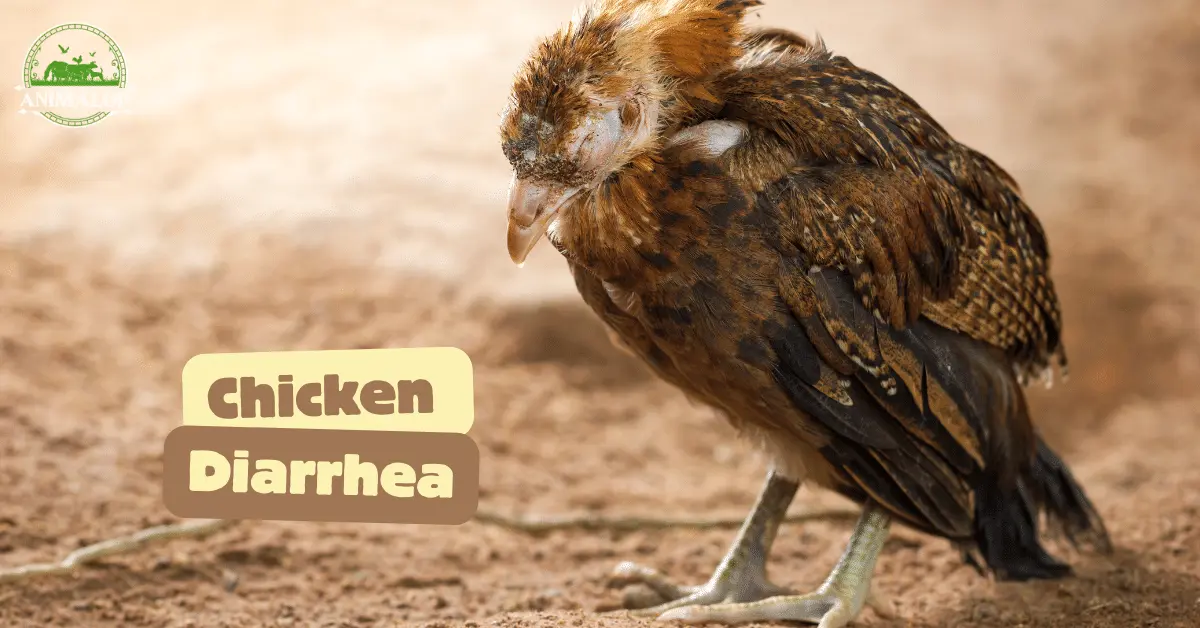
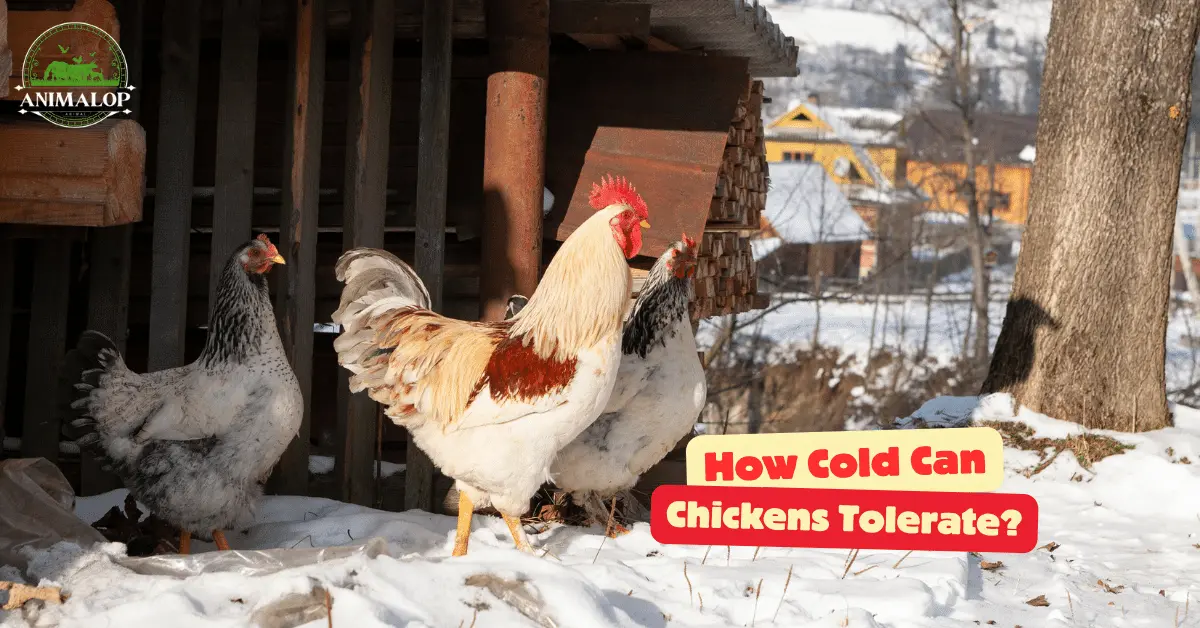
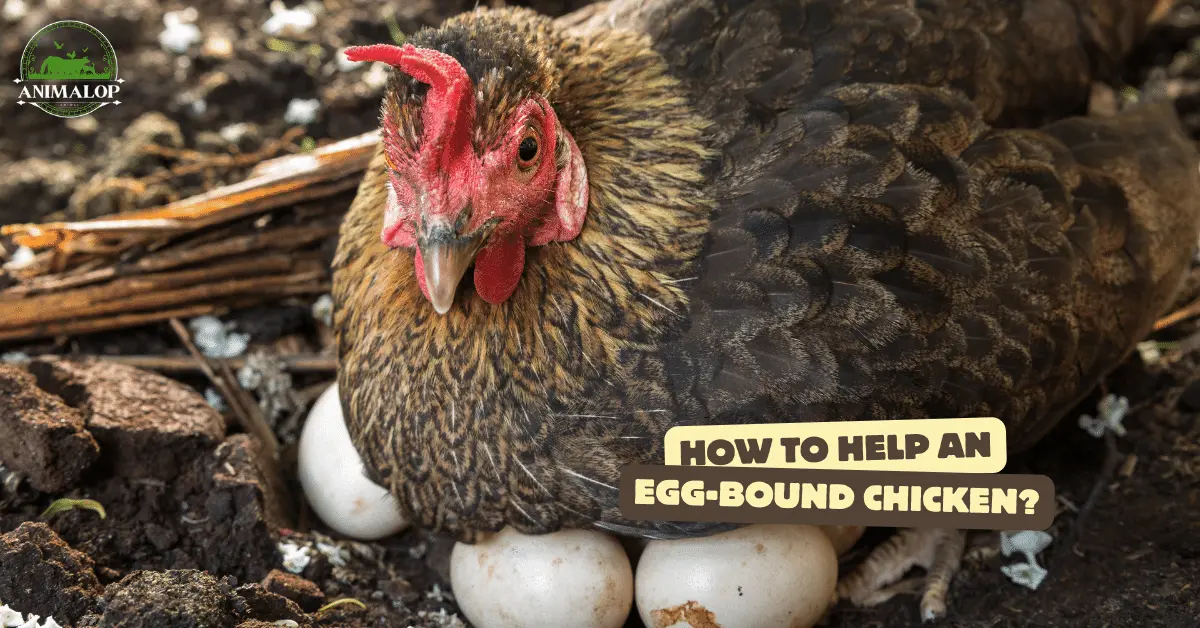
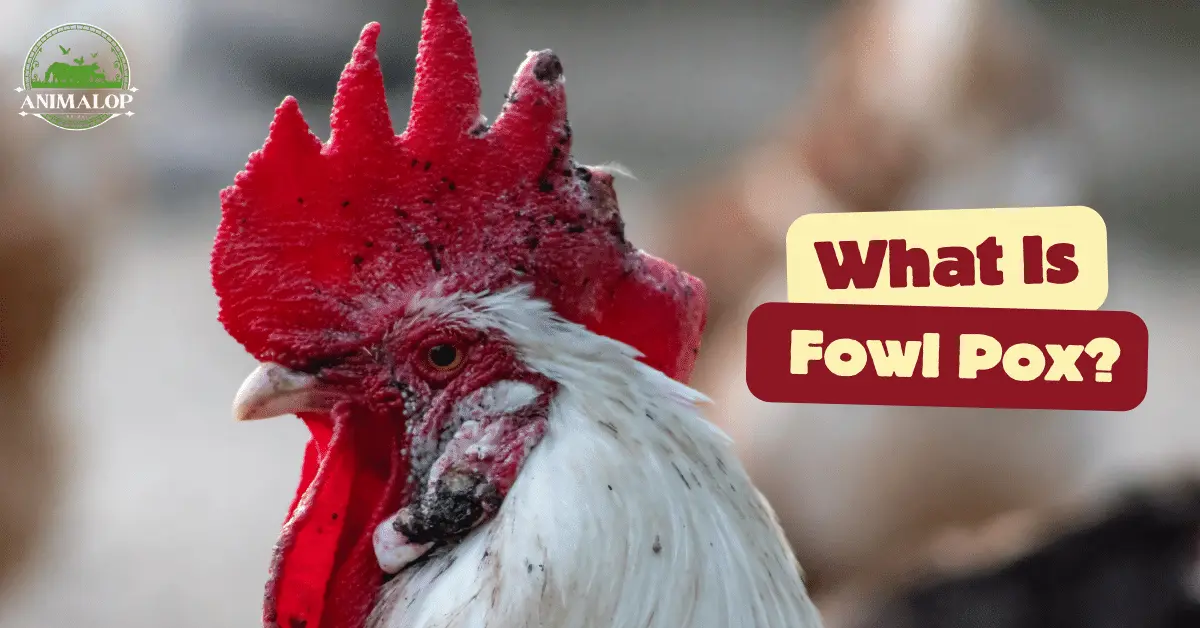
4 Comments on “Chicken Diarrhea: Causes, Symptoms, Treatment, & Prevention”